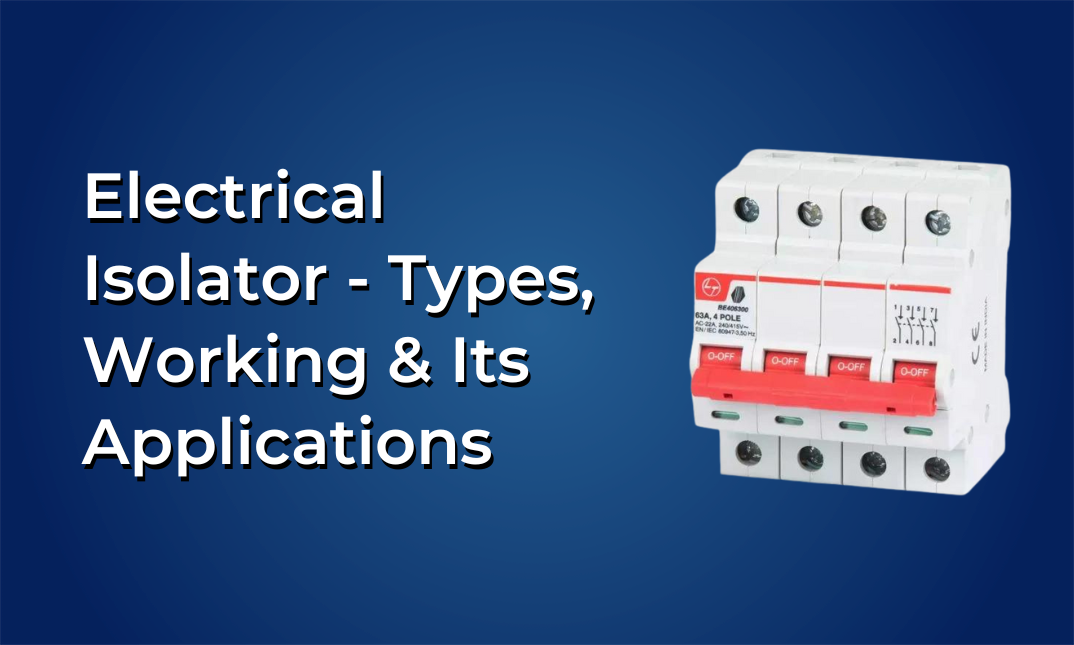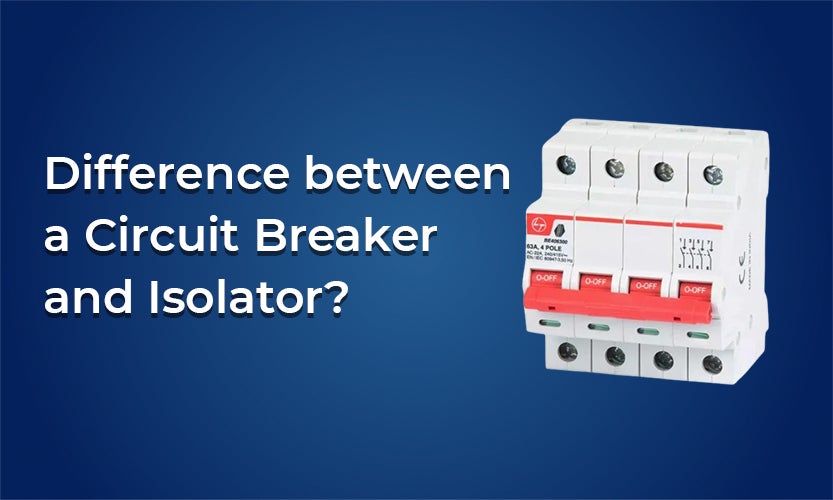Circuit breakers and isolators are both devices used for safeguarding electrical systems. While they may appear similar in design for a novice user, a closer examination reveals distinct differences in design, operation, and intended usage. In this article, we look at the unique characteristics of circuit breakers and isolators and their importance in electrical engineering.
Circuit Breaker Definition
The primary function of a circuit breaker is to detect abnormal conditions within the electrical system, such as overload, short-circuit, or ground faults, and interrupt the electric current through a combination of sophisticated trip mechanisms. Circuit breakers typically have three main types of tripping mechanisms - thermal, magnetic, and electronic. Upon detection of an electrical fault, the relevant system activates and trips the circuit to protect equipment and personnel from electrical hazards.
Isolator Definition
An isolator is primarily a maintenance tool, it helps in isolating electrical circuits during repair works. The isolator physically disconnects a circuit from the power source to create a safe working environment for personnel, and effectively acts as a safeguard against live electrical components. Isolators generally have clear visual markers to indicate whether the circuit is energised or de-energised.
So, in essence, a circuit breaker is a safety device that protects personnel and equipment from electrical fault conditions whereas an isolator is a maintenance safety device that helps in disconnecting a circuit during upgrade or repair work.
Working Mechanism:
While circuit breakers possess a number of tripping mechanisms, isolators are relatively simple in design.
Circuit Breaker Working Mechanism
Normally, a circuit breaker has a thermal and a magnetic trip mechanism. The thermal strip provides protection against overload conditions, where the bimetallic strip melts to disconnect the circuit once the threshold of current rating is exceeded for a given amount of time. The magnetic trip mechanism acts via an electromagnet that trips the circuit instantly during short-circuits. More advanced circuit breakers (MCBs and MCCBs) also offer electronic trip capabilities, remote operation, and data logging capabilities.
Isolator Working Mechanism
Unlike circuit breakers, there is no trip mechanism inside an isolator. The isolator is a manual switch which needs to be operated by personnel. It offers a simple open/close functionality, just like regular switches we use to turn on lights and power sockets. However, the construction of an isolator is sturdier than regular switches and sockets, as it is the physical barrier between the circuit and the power source.





